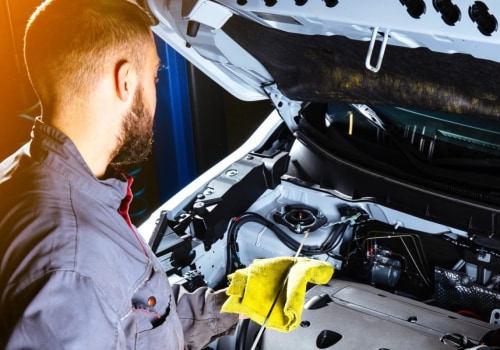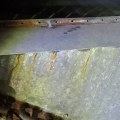Are you looking for ways to save money on AC repair? One of the best ways to keep your air conditioner running efficiently is to schedule regular tune-ups. Regular tune-ups can help prevent costly repairs and extend the life of your air conditioner. In this article, we’ll look at why it’s important to schedule regular AC tune-ups, the benefits you can expect from regular maintenance, and how to go about scheduling tune-ups for your AC unit.
What is an AC Tune-Up?
An AC tune-up is a preventative maintenance service designed to ensure your air conditioner is running as efficiently as possible. During an AC tune-up, a qualified technician will check for any potential issues with the system and make any necessary repairs or adjustments.This includes checking the refrigerant levels, inspecting the evaporator and condenser coils, testing the electrical components, and cleaning or replacing the air filter. An AC tune-up can help prevent costly repairs in the future by identifying any problems early on and ensuring that the air conditioner is running at peak efficiency. AC tune-ups are important for several reasons. They can help extend the life of your air conditioner, reduce energy bills by improving energy efficiency, and improve the overall quality of your home's air. Regular AC tune-ups can also help to prevent breakdowns during hot summer months when you need your air conditioner the most.
What Other Preventive Maintenance Steps Can Be Taken To Reduce The Cost Of AC Repairs?
Aside from scheduling regular AC tune-ups, there are other steps homeowners can take to reduce the cost of AC repair. One of the most important is to change the air filter regularly. This helps to ensure that the air conditioner is working efficiently and prevents dirt and dust from clogging up the system and causing it to break down. Another way to reduce AC repair costs is to use a programmable thermostat.This allows you to set the temperature at certain times of the day, so you don't have to worry about manually adjusting it. Programmable thermostats can also be set to turn off at night or when no one is home, helping to save energy and money. Finally, it's important to have a professional inspect and clean the system annually. This helps to identify any potential problems before they become costly repairs.
A professional inspection can also help to extend the life of your air conditioner and ensure that it is running as efficiently as possible.
How Often Should AC Tune-Ups Be Scheduled?
It is recommended to schedule regular AC tune-ups at least once a year in order to ensure that your air conditioning system is running smoothly and efficiently. However, the frequency of tune-ups may vary depending on the age and condition of your system, as well as the climate in which you live. If you live in an area with hot, humid summers, you may want to consider scheduling AC tune-ups every 6 months or so. Additionally, if your AC unit is more than 10 years old, or is exhibiting signs of wear and tear, you may want to schedule more frequent tune-ups. When determining how often to schedule AC tune-ups, it is important to consider factors such as the age and condition of the unit, the climate in which you live, and any maintenance that has already been done on the unit.Additionally, if you have recently had any major repairs or replacements done on your AC unit, it is recommended to have a tune-up soon afterwards in order to ensure that everything is working properly. Regular AC tune-ups are important for prolonging the life of your air conditioning unit and ensuring that it is running efficiently. In addition, regular AC tune-ups can save you money on costly repairs by identifying and fixing small issues before they become more serious problems. By scheduling regular AC tune-ups, you can keep your air conditioning system running smoothly and help save money on costly repairs.
What Should Be Included in an AC Tune-Up?
AC tune-ups are essential for keeping your system running efficiently and preventing costly repairs down the line. During an AC tune-up, your HVAC technician should complete a variety of tasks, including cleaning the evaporator coil, checking refrigerant levels, and inspecting electrical connections.Cleaning the evaporator coil is an important part of an AC tune-up because it helps to maintain the system's efficiency and reduce the risk of breakdowns. The technician should use a specialized cleaner to remove any dirt or debris that has built up over time. This helps the system run more efficiently and reduces the risk of damage due to dirt buildup. Another important task that should be completed during an AC tune-up is checking the refrigerant levels.
Low refrigerant levels can cause the system to work harder, leading to higher energy bills and potential damage to the unit. The technician should also inspect all electrical connections to ensure they are secure and properly connected. This helps to prevent potential issues with the electrical components that could lead to system failure. By scheduling regular AC tune-ups, homeowners can save money on AC repair costs, reduce energy bills, and ensure their system runs more efficiently for years to come.
Regular maintenance is essential for keeping your system in top condition and avoiding costly repairs or replacements down the line.
What Benefits Do Regular AC Tune-Ups Offer?
Regular AC tune-ups can offer a number of benefits to homeowners, including improved efficiency, reduced repair costs, and improved air quality. Scheduling regular tune-ups for your air conditioning system can help ensure that your system is running at its peak performance and that any potential issues are caught and addressed before they become costly repairs. Improved efficiency is one of the primary benefits of regular AC tune-ups.A well-maintained system will be able to cool your home more efficiently, resulting in lower energy bills. Additionally, the technician can identify any areas of the system where efficiency can be improved, such as air filters that need to be replaced or gaps in insulation that need to be filled. Regular AC tune-ups can also help reduce repair costs. By catching any potential problems early, you can avoid costly repairs down the road.
Additionally, the technician will be able to spot any parts that need to be replaced before they fail, resulting in fewer emergency repair calls. Finally, regular AC tune-ups can help improve air quality in your home. The technician will be able to identify any parts that need to be cleaned or replaced and make sure that the system is running properly. This can help reduce dust and other allergens in your home, resulting in better air quality and fewer health issues.
What Are Some Common Signs That An AC Tune-Up Is Needed?
When it comes to air conditioning repair costs, many homeowners are looking for ways to save money.Scheduling regular AC tune-ups can be an effective way to reduce these costs. But what are some common signs that an AC tune-up is needed?One of the most common signs that an AC tune-up is needed is strange noises or odors coming from the unit. If you start to hear strange noises or smell strange odors, then it's time to call a professional and schedule a tune-up. Another sign that you need an AC tune-up is weak air flow. If the air coming from your vents is weaker than usual, then it could indicate a problem with your air conditioner that needs to be addressed by a professional.
Finally, higher than normal energy bills can also be a sign that your AC unit needs a tune-up. If you notice that your energy bills are higher than usual, then it could indicate that your air conditioner is not running as efficiently as it should be. It's important to remember that regular AC tune-ups can help you save money on AC repair costs in the long run. By scheduling regular tune-ups, you can ensure that your unit is running as efficiently as possible and help prevent any costly repairs in the future.











